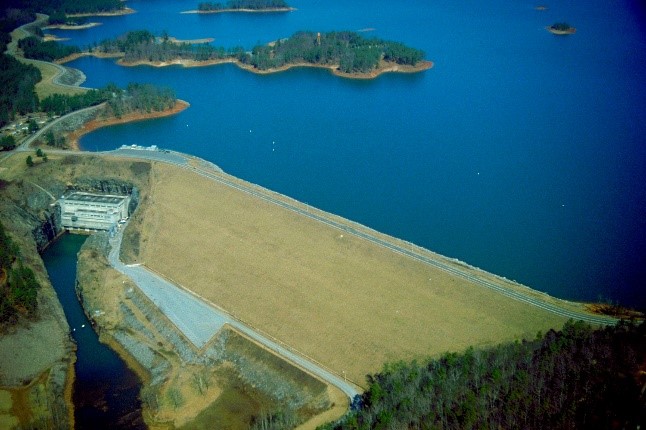Water-rights dispute Florida v. Georgia seems to have stalled (UPDATED)


More than a year ago, Justice Stephen Breyer released the final ruling of October Term 2017 when he announced the decision in Florida v. Georgia, “breezily” summarizing “the ruling in this water dispute that he acknowledges is not a blockbuster.” Although the Supreme Court may have found this to be a technical case, it is of paramount importance to Florida and Georgia. After holding that Special Master Ralph Lancaster had applied too strict a standard in ruling against Florida, the court sent the case back to the special master with a set of questions to answer. Some had hoped the case could proceed quickly; however, it now seems to have stalled.
On August 9, 2018, the court discharged Ralph Lancaster and replaced him with a new special master, Judge Paul J. Kelly, Jr., of the U.S. Court of Appeals for the 10th Circuit. Kelly promptly issued a case management order on August 23, 2018, asking the parties to consider whether the existing record was sufficient to resolve the case or whether more discovery, stipulations or hearings would be needed; whether settlement possibilities have been explored; and whether there were any other issues.
After reviewing the parties’ joint submission from October 2018, Kelly ruled in November 2018 that the existing record was sufficient to resolve the case, along with other findings. In addition, he asked for proposed findings and conclusions and supplemental briefs to be filed by January 2019, with responses by February. Finally, he hired a legal assistant, Joshua D. Dunlap, of Pierce Atwood LLP (Ralph Lancaster’s firm). On January 22, 2019, former Special Master Ralph Lancaster passed away at the age of 89.
As required, both Florida and Georgia submitted post-remand briefs and proposed findings and conclusions on January 31, 2019; both sets of briefs sought to address the questions laid out by the court.
In its supplemental brief, Florida noted that Lancaster found that Georgia’s upstream water use was unreasonable and that the Supreme Court rejected Lancaster’s additional finding that nothing could be done because the U.S. Army Corps of Engineers, which manages the reservoirs in the river system, is not a party to the case. Florida cited the court’s finding that “uncertainties about the future do not provide a basis for declining to fashion a decree” to argue that “Florida is entitled to relief if, under ‘reasonable predictions of future conditions,’ … the benefits of a decree would substantially outweigh its costs.”
Georgia’s supplemental brief emphasized that Florida has not met its “heavy burden” of proving “by clear and convincing evidence that the benefits of an equitable apportionment decree substantially outweigh any harm that might result.” Georgia further argued that Florida has failed to prove harm to the Apalachicola River or Bay; rather, “the Corps—not Georgia—caused those lower river levels through Congressionally authorized activities in the [Basin], Florida allowed over-harvesting of oysters after the Deepwater Horizon, and experts determined that additional water from Georgia would not have improved conditions.” Georgia also argued that its use of the Flint River, which flows into the Apalachicola River, is equitable because it puts the water to “highly productive uses” and “the vast majority of available water flows across the state line into Florida.” Georgia then argued that Florida overstated the extent to which a cap would increase streamflow and failed to provide a feasible remedy to ameliorate the alleged harms. Finally, Georgia noted its “extensive measures” to conserve water in the Basin.
In its supplemental response brief, Florida argued that Georgia disregarded the court’s mandate on equitable-apportionment principles, relying primarily on the dissent; ignored the “plain effects” of water consumption in Georgia; and understated the benefits of a decree to Florida while overstating the costs to Georgia. Florida repeatedly noted that Georgia failed to address the court’s decision in a variety of ways, finally arguing that “[u]nder the framework established by the Supreme Court last June, the evidence overwhelmingly shows Florida is entitled to relief.”
Georgia’s supplemental response brief emphasized arguments made earlier: Florida has failed to prove harm to the aquatic species living in either the river or the bay; regulation of water by the U.S. Army Corps of Engineers and drought were the causes of flow declines; Georgia accurately reported its consumptive water use; Florida understated Georgia’s water conservation efforts; and Florida failed “to account for the impact of Corps operations on state-line flow.” Georgia closed by stating that “the economic harms to Georgia from Florida’s proposed cap would overwhelm any minimal and speculative benefits to Florida.”
On March 12, Florida submitted a motion for oral argument, requesting at least 90 minutes per side and indicating that Georgia did not join or oppose the request.
On March 22, Kelly updated the distribution list for service but did not rule on Florida’s motion for oral argument. At this point, the case has gone dark. Stay tuned to the docket.
UPDATE: Special Master Kelly has moved up the fact-finding hearing in this case, originally scheduled for December 16, to October 17 in Albuquerque, New Mexico. On September 16, oral argument was rescheduled again for Thursday, November 7, per the request of attorneys representing the state of Florida.
Posted in What's Happening Now
Cases: Florida v. Georgia
